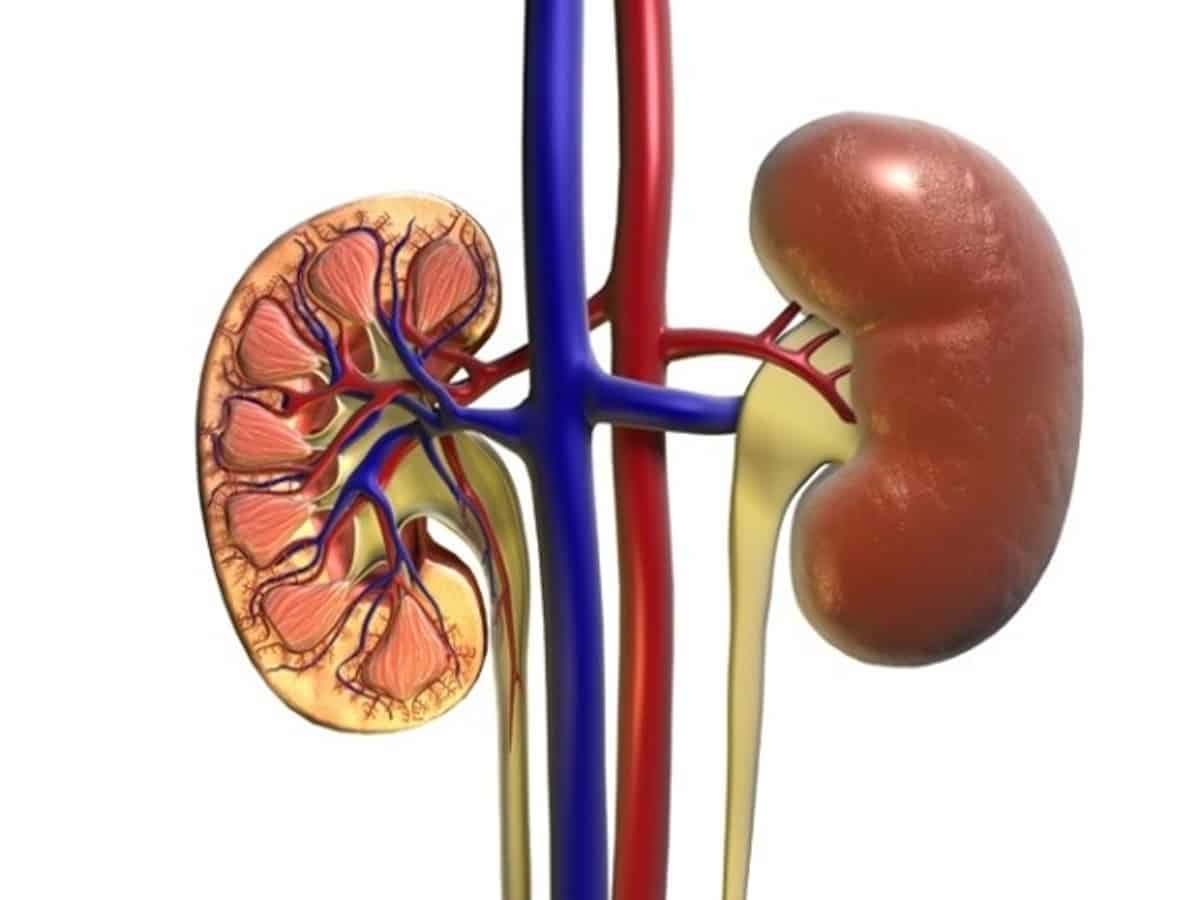
New Delhi: Long known as a valuable treatment for bipolar disorder, lithium may also be useful in treating kidney disease, a silent killer which affects about an estimated 10 crore people in India, health experts contended here on Friday.
Though inexpensive and widely available, lithium’s potential toxicity has given it a bad reputation to date.
But, in a recent study published in the Journal of Clinical Investigation, US researchers claimed that lithium in low doses may help slow kidney ageing and promote its proper functioning.
“Lithium has been a valuable treatment for bipolar disorders for decades. Clinical use of lithium, however, has been problematic due to its narrow therapeutic index and concerns for its toxicity in various organ systems,” Dr Amit K. Devra, Director of Urology and Kidney Transplantation at Jaypee Hospital, told IANS.
He said that histologically, chronic lithium nephrotoxicity is characterised by interstitial nephritis and it has strongest risk factors of high serum levels of lithium and longer time on lithium therapy.
“Lithium is nephrotoxic, meaning patients who take chronic lithium for a long period of time can have an effect on their kidney and increase the chances of kidney failure,” Dr Rajesh Aggarwal, Senior Consultant and Chief of Kidney Transplant and Dialysis Department at Sri Balaji Action Medical Institute, said.
However, Devra noted that “in experimental models of acute kidney injury and glomerular disease, lithium has antiproteinuric, kidney protective, and reparative effects. This paradox may be partially explained by lower lithium doses and short duration of therapy”.
Researchers at the University of Toledo in Ohio observed a similar benefit of lithium. They found that low-dose lithium can act as a powerful anti-aging agent in the kidneys. It could block GSK3-beta – an enzyme associated with cellular ageing in the kidney and a decline in kidney function.
The team stated that lithium may only be bad when used in high doses, while low doses of the element may prove to be an effective treatment for kidney disease.
Again, besides its toxicity on kidneys, lithium also has other risk factors for the human body, the experts said.
“Short-term side-effects can include shaking, metallic taste, feeling very tired, acne, fatigue, diarrhoea, thirst, frequent urination, nausea, vomiting, headache, etc,” Aggarwal said.
Taking lithium from long periods can also affect your weight and thyroid. It can also cause drowsiness, he added.
But on the flip side, other than treating bipolar diseases, the element has been shown in lab experiments to extend the lifespan of fruit flies and roundworms.
Observational studies suggested that tap water naturally laced with trace amounts of lithium might improve human longevity.
“Recent incidents suggest that lithium can also have severe anti-ageing effects. A study revealed that low doses of lithium helped about 16-18 per cent people live longer than a controlled group,” Dr Sandeep Mandal, Consultant in Nephrology at Manipal Hospital in Gurugram, said.
According to the US study, Mandal said lithium blocks the activity of the GSK-3, which has previously been linked to the development of age-related diseases such as Alzheimer’s and Parkinson’s disease.
Lithium has also been found to promote the activity of a molecule called related nuclear factor (erythroid-derived 2) related factor (NRF – 2), which is involved in protecting cells against oxidative stress – a key player in the ageing process.
“Lithium may also confer its anti-ageing effects by influencing the expression of genes responsible for telomere length regulation. Lithium use in bipolar disorder patients have been found to be associated with longer telomere length,” Devra noted.
Before jumping into any conclusion, further studies are imperative “to understand the exact kidney-protective dose of lithium in humans”, he added.
